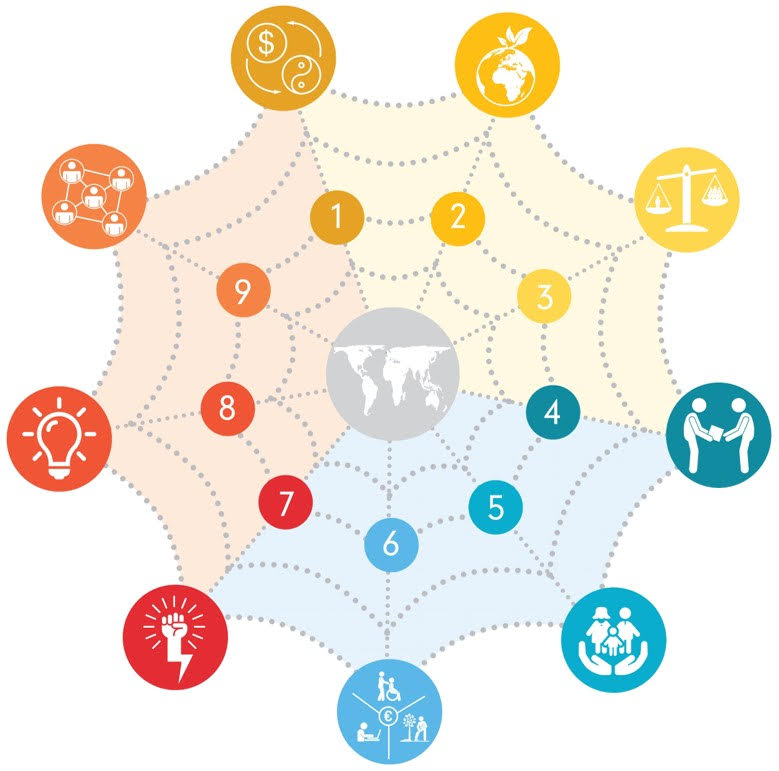What is Ecosocial?

https://www.wiso.uni-hamburg.de/en/fachbereich-sozoek/professuren/zimmermann/ecowelfarenet.html
The Sustainable Welfare & Eco-social Policy Network will provide participants with the opportunity for exchange and the ultimate aim to expand into a new and stronger network. The idea is to foster a collaborative spirit among academics in this growing research area and to come up with a set of common activities and services

At the heart of ecosocial strategies is the recognition that inequality and environment degradation are different sides of the same coin and that we need to progress equality and environmental sustainability as interlinked goals. Achievement of each form of sustainability depends on the other and this understanding informs ecosocial ambition, analysis, solutions, and strategies for action. Eco-social policies are explicitly designed to achieve social and ecological goals in an interconnected manner.
Ecosocial welfare identifies a range of tools, including social policy or welfare policies and practices (Mandelli 2022). These tools mean a shift from production and consumption, and moving to socially value other ways of being in the world, forms of contribution that achieve both social and environmental protection. The focus is less on how welfare can mitigate unequal impacts of climate change and more on what eco-social policy offers as part of a post-growth society that moves beyond societal and environmental degradation. Ecosocial approaches are transformative of the entire socio- economic system. This type of ‘system change’ demotes economic growth as a primary mechanism to distribute resources and focuses on eco-social alternatives in how we redistribute not only carbon emissions, but all aspects of our lives including care, work, and time and how we collectively distribute services, income and wealth.
In the book Creating an EcoSocial Welfare Future a palette of policies is suggested including enabling institutions, universal basic services and participation income, that together can contribute towards a society based on equality, reciprocity and interdependence, rooted in an ethic of care for our planet and each other. However many other tax, welfare, services and labour market policies are also relevant to creating conditions for social and ecological sustainability. Ultimately ecosocial strategies can support a different political economy that rebalances power away from markets, and towards the state and society. While transformative the seeds for such change are hidden in the present and we can find the seeds of ecosocial policy in contemporary welfare policy enabling transition. That said the ‘urgency of now’ requires we accelerate the path to eco-social welfare. Ready Now.